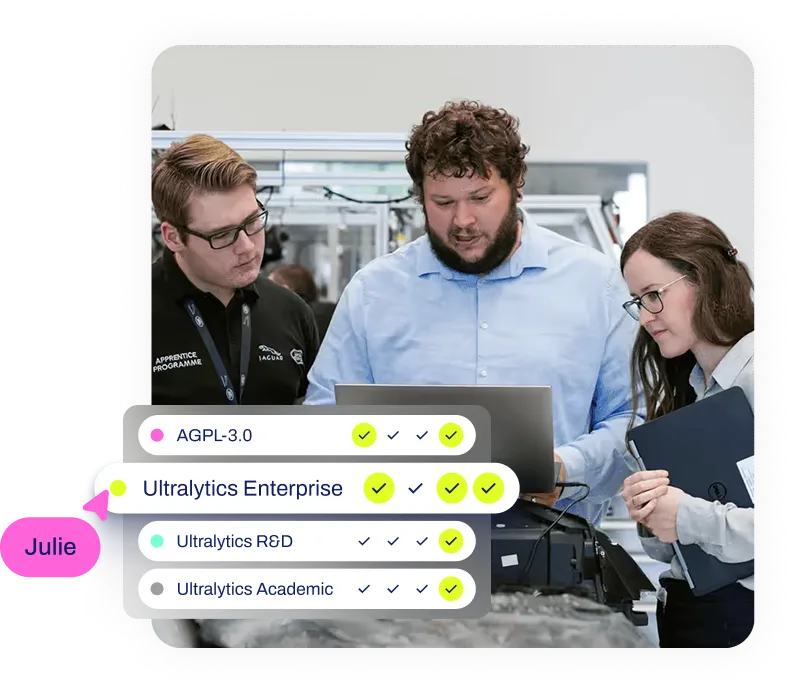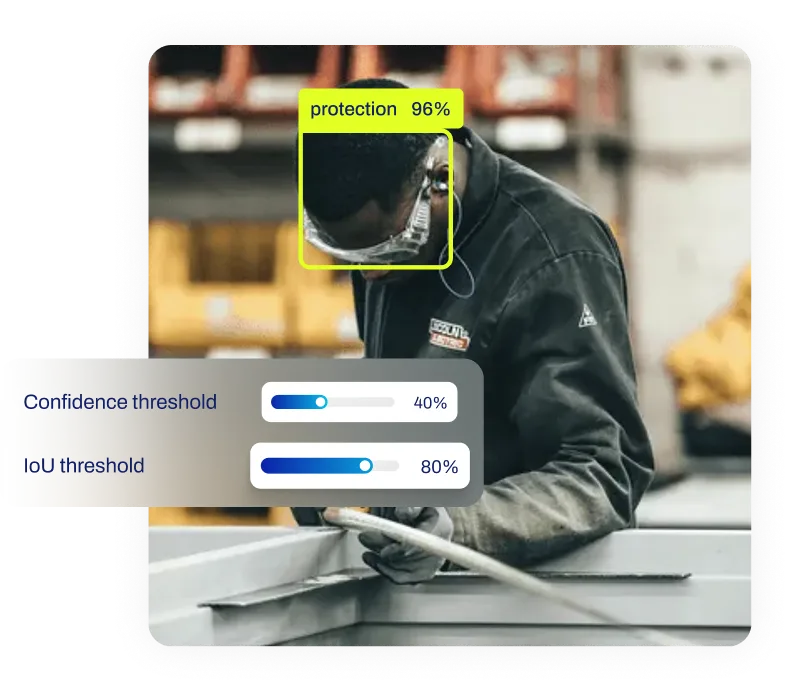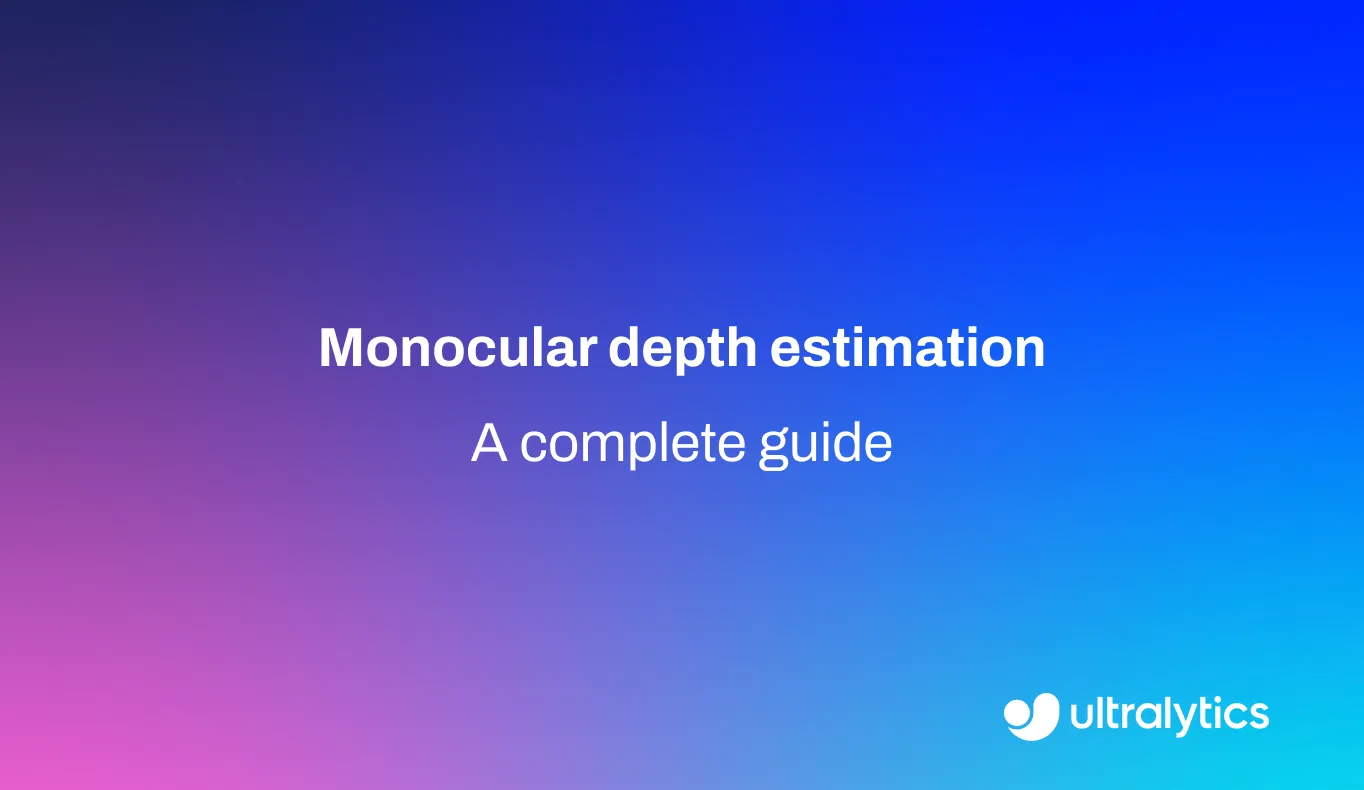Datos de prueba
Explora el papel fundamental que desempeñan los datos de prueba en el aprendizaje automático. Aprende a evaluar el rendimiento Ultralytics utilizando conjuntos de datos imparciales para garantizar la precisión en el mundo real.
Los datos de prueba son un subconjunto específico de un conjunto de datos más amplio que se reserva estrictamente para evaluar el rendimiento final
de un modelo de aprendizaje automático (ML).
A diferencia de los datos utilizados durante las fases de aprendizaje anteriores, los datos de prueba permanecen completamente «ocultos» para el algoritmo
hasta el final del ciclo de desarrollo. Este aislamiento es fundamental porque proporciona una evaluación imparcial de
la capacidad de un modelo de visión artificial (CV) u otro
sistema de IA para generalizar a nuevas entradas del mundo real. Al simular un entorno de producción, los datos de prueba ayudan a los
desarrolladores a verificar que su modelo ha aprendido realmente los patrones subyacentes en lugar de limitarse a memorizar los ejemplos de entrenamiento
.
El papel de los datos de prueba en el ciclo de vida del ML
En el flujo de trabajo estándar del aprendizaje automático, los datos
se dividen normalmente en tres categorías distintas, cada una de las cuales tiene un propósito único. Comprender la
distinción entre estas divisiones es vital para construir
sistemas robustos de inteligencia artificial (IA).
-
Datos de entrenamiento: esta es la mayor
parte del conjunto de datos, utilizada para enseñar al modelo. El algoritmo ajusta iterativamente sus parámetros internos, o
pesos, para minimizar los errores en este conjunto específico de
ejemplos.
-
Datos de validación: este subconjunto se
utiliza con frecuencia durante el proceso de entrenamiento para ajustar
los hiperparámetros y orientar las decisiones sobre la arquitectura
. Actúa como una comprobación provisional para evitar el
sobreajuste, que se produce cuando un modelo funciona bien con los datos de entrenamiento
pero falla con los datos nuevos.
-
Datos de prueba: Se trata del «examen» final del modelo. Nunca se utiliza para actualizar pesos ni
ajustar configuraciones. La evaluación de los datos de prueba proporciona métricas de rendimiento definitivas, como la
precisión, la
recuperación y la
precisión media (mAP), que
las partes interesadas utilizan para decidir si un modelo está listo para su
implementación.
La gestión adecuada de estas divisiones suele verse facilitada por herramientas como la
Ultralytics , que puede organizar automáticamente los conjuntos de datos cargados
en estas categorías esenciales para garantizar una evaluación rigurosa
del modelo.
Importancia de una evaluación imparcial
El valor principal de los datos de prueba reside en su capacidad para detect
problemas de sesgo y varianza en los conjuntos de datos. Si un modelo alcanza
una precisión del 99 % en los datos de entrenamiento, pero solo del 60 % en los datos de prueba, esto indica una alta varianza (sobreajuste). Por el contrario, un
rendimiento deficiente en ambos sugiere un subajuste.
El uso de un conjunto de pruebas designado se ajusta a los principios científicos de
reproducibilidad y objetividad. Sin un conjunto de pruebas impoluto
, los desarrolladores corren el riesgo de «enseñar para la prueba», filtrando efectivamente información de la fase de evaluación
a la fase de entrenamiento, un fenómeno conocido como
fuga de datos. Esto da lugar a estimaciones de rendimiento excesivamente optimistas
que se desmoronan cuando el modelo se enfrenta a
datos del mundo real.
Aplicaciones en el mundo real
Los datos de prueba son esenciales en todos los sectores que utilizan IA para garantizar la seguridad y la fiabilidad antes de que los sistemas entren en funcionamiento.
-
Conducción autónoma: En el desarrollo de
vehículos autónomos, los datos de entrenamiento pueden
consistir en millones de kilómetros recorridos por autopista en condiciones meteorológicas despejadas. Sin embargo, los datos de prueba deben incluir situaciones poco frecuentes y
difíciles, como nevadas intensas, obstáculos repentinos o señales de tráfico confusas, que el coche nunca ha
«visto» explícitamente durante el entrenamiento. Esto garantiza que el
sistema de detección de objetos pueda reaccionar de forma segura en
entornos impredecibles.
-
Diagnóstico sanitario: al crear un modelo para la
detección de tumores en imágenes médicas, el conjunto de entrenamiento puede provenir de la base de datos de un hospital específico. Para verificar que el modelo es robusto y seguro para
su uso general, lo ideal es que los datos de prueba incluyan escáneres de diferentes hospitales, tomados con diferentes máquinas
y que representen una demografía de pacientes diversa. Esta validación externa confirma que la IA no está sesgada hacia un
tipo de equipo o población específicos.
Evaluación del rendimiento con código
Utilización de la ultralytics paquete, puede evaluar fácilmente el rendimiento de un modelo en un conjunto de datos retenido. Aunque
el val El modo se utiliza a menudo para la validación durante el entrenamiento, pero también se puede configurar para que se ejecute en una
división de prueba específica definida en su
Configuración YAML del conjunto de datos.
A continuación se explica cómo evaluar un modelo YOLO26 preentrenado para obtener
métricas como mAP50:
from ultralytics import YOLO
# Load a pre-trained YOLO26 model
model = YOLO("yolo26n.pt")
# Evaluate the model's performance on the validation set
# (Note: In a strict testing workflow, you would point 'data'
# to a YAML that defines a specific 'test' split and use split='test')
metrics = model.val(data="coco8.yaml")
# Print a specific metric, e.g., mAP at 50-95% IoU
print(f"Mean Average Precision (mAP50-95): {metrics.box.map}")
Este proceso genera métricas exhaustivas, lo que permite a los desarrolladores comparar objetivamente diferentes arquitecturas, como
YOLO26 frente a YOLO11, y garantizar que la solución elegida
cumpla los objetivos definidos para el proyecto.
Las pruebas rigurosas son el último paso para garantizar que se cumplan los
estándares de seguridad de alta calidad de la IA.










.webp)